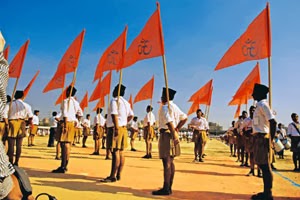Is the practice of religion a deeply private affair, confined to values and belief systems at the level of the individual, or is it an open community activity, carried out in the public domain with social participation? Does one person’s right to practise his or her religion come in conflict with another person’s right to propagate his or her religion? These are only some of the questions that have come up following attempts at mass religious conversions by politically affiliated outfits. The right to choose a religion of one’s choice is fundamental to the freedom of religion, but as the Supreme Court has held, the right to propagate a religion does not include any ‘right’ to convert other people. The December 8 ‘conversion’ of scores of Muslim families to Hinduism created a political furore for more than one reason. Mass conversions from one religion to another are usually political in nature, and they almost always create tensions between the two communities. Such conversions by themselves are not problematic unless there is evidence of force or fraud. But opposition parties saw in the exercise another attempt at communal polarisation by Hindutva outfits with ideological affinity to the Sangh Parivar and the BJP. Moreover, many of the political opponents of the BJP were alarmed at the efforts to lure poor Muslim slum-dwellers with state-conferred benefits such as ration cards. While material inducements for religious conversion, even if morally abhorrent, are not rare or illegal, the opposition saw the government as being complicit in the effort by the organisations involved in the mass conversion to link state benefits to a ‘return’ to Hinduism.
Predictably, BJP leaders have turned the debate over this latest round of conversions into an opportunity to revive the demand for banning all forms of religious conversion. However, the issues arising from the Agra conversions have nothing to do with religious conversion per se, which are unexceptionable, but with communal politics and discrimination on the grounds of religion in extending state benefits. Many of those who were ‘converted’ have returned to Islam saying they agreed to convert on the promise of material benefits, but this is no argument against the original conversion. Actually, at the heart of this conversion narrative in the Agra slum are issues of poverty and deprivation, and not religious succour. Conversion from one religion to another, whether of individuals or clusters of families, whether they result in social tensions or not, is of no real concern so long as there is no force or fraud involved. Those who want a ban on conversions on the basis of material inducements should instead concentrate on fighting poverty and deprivation.

Leave a Reply